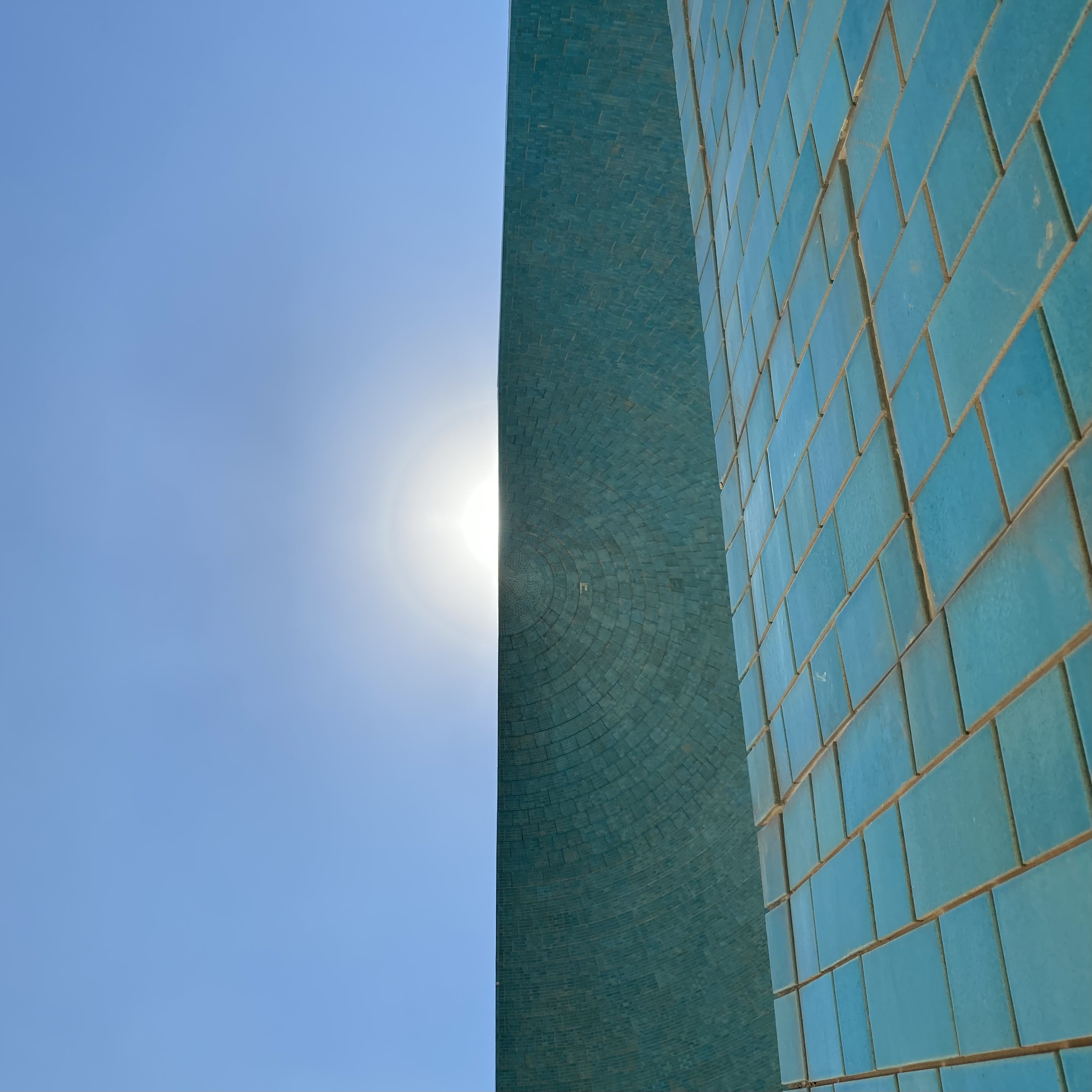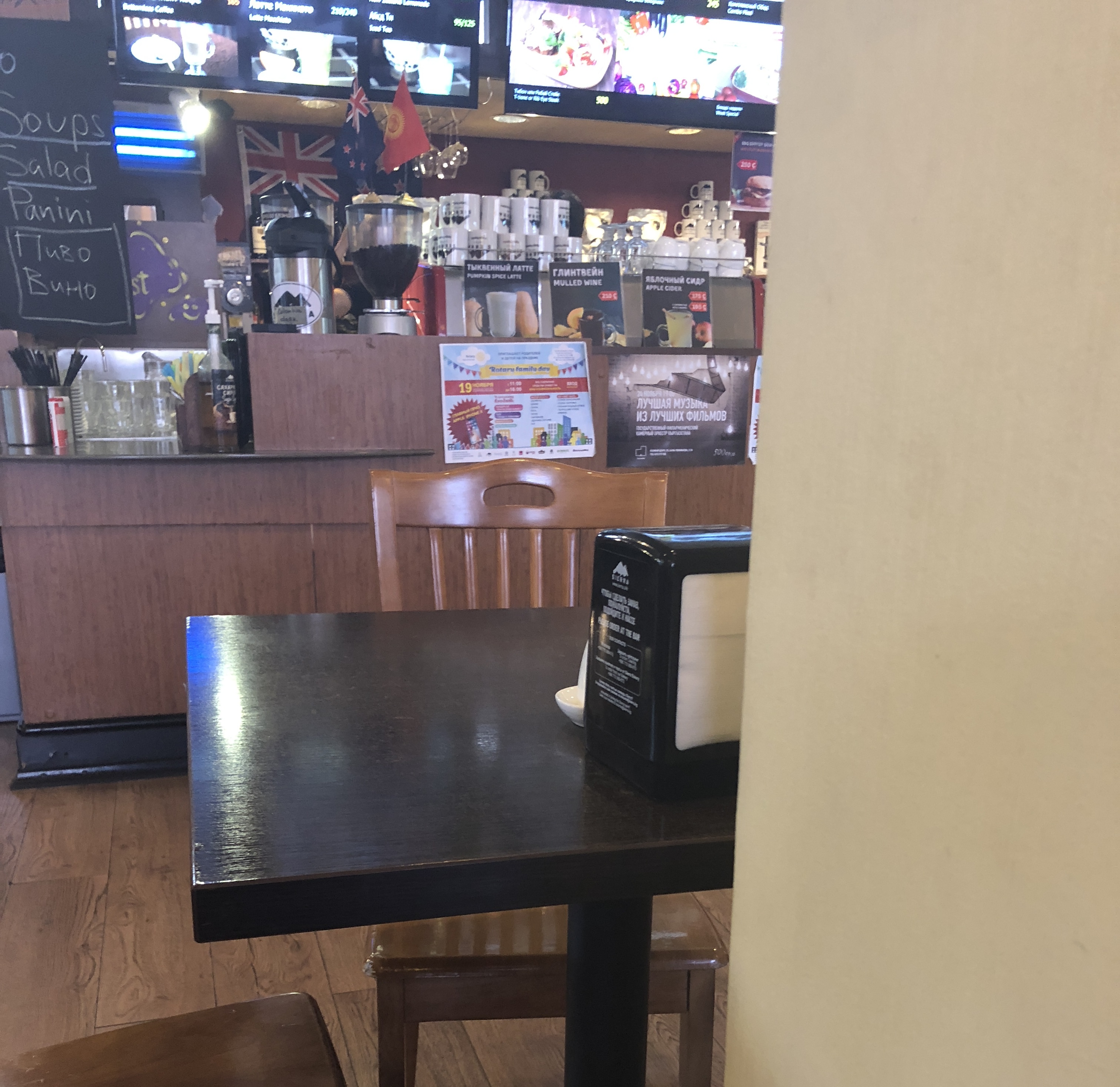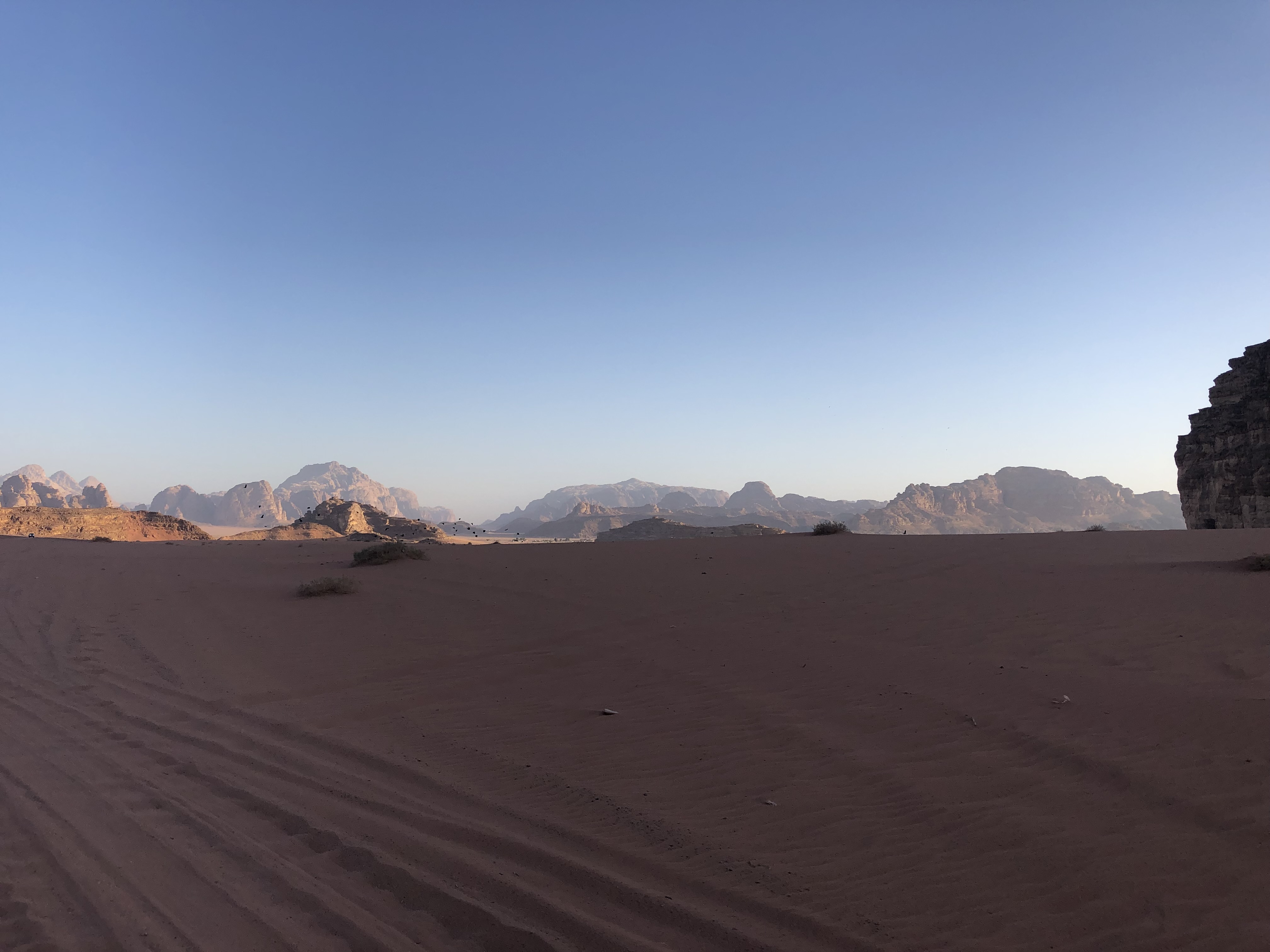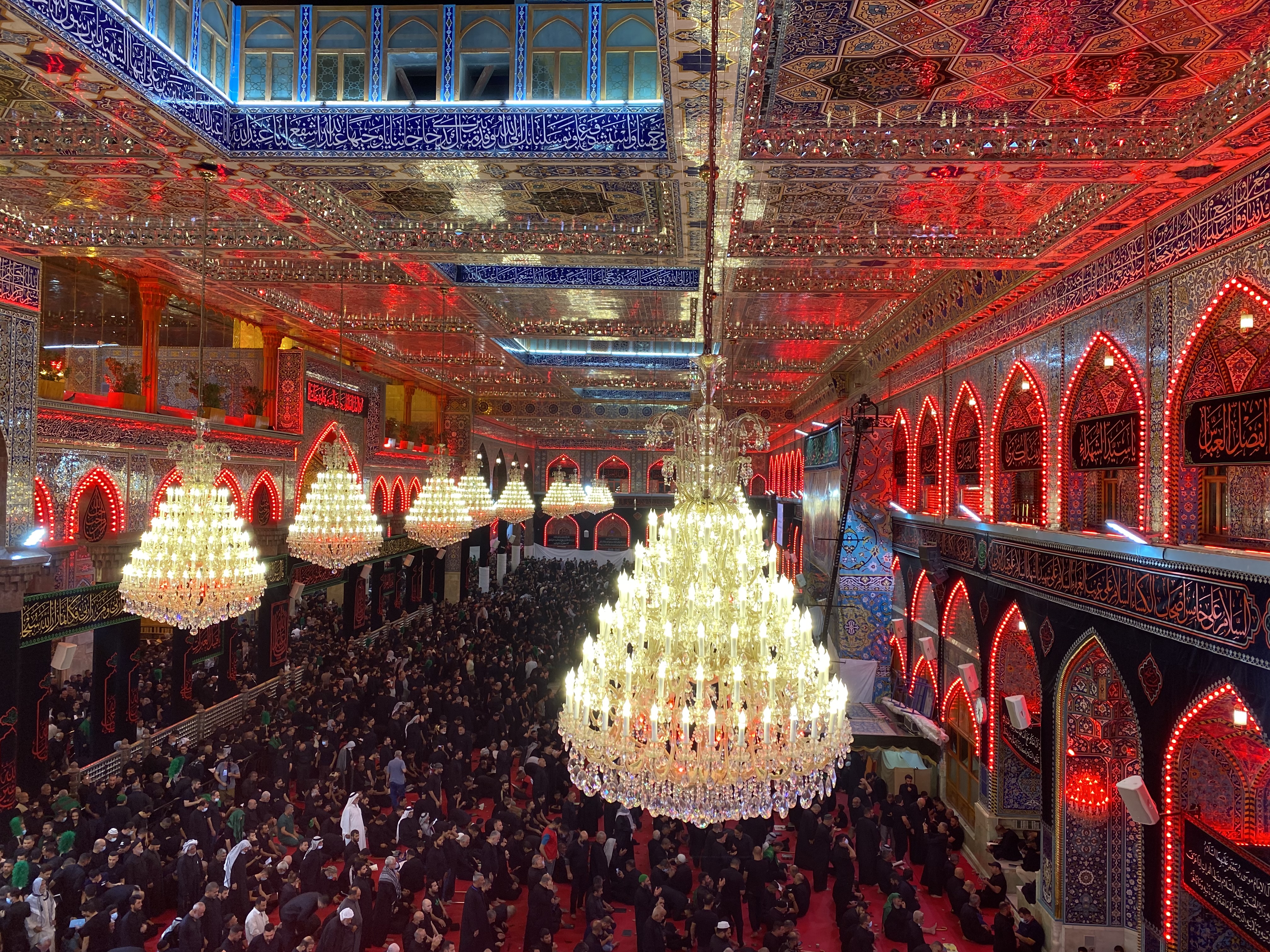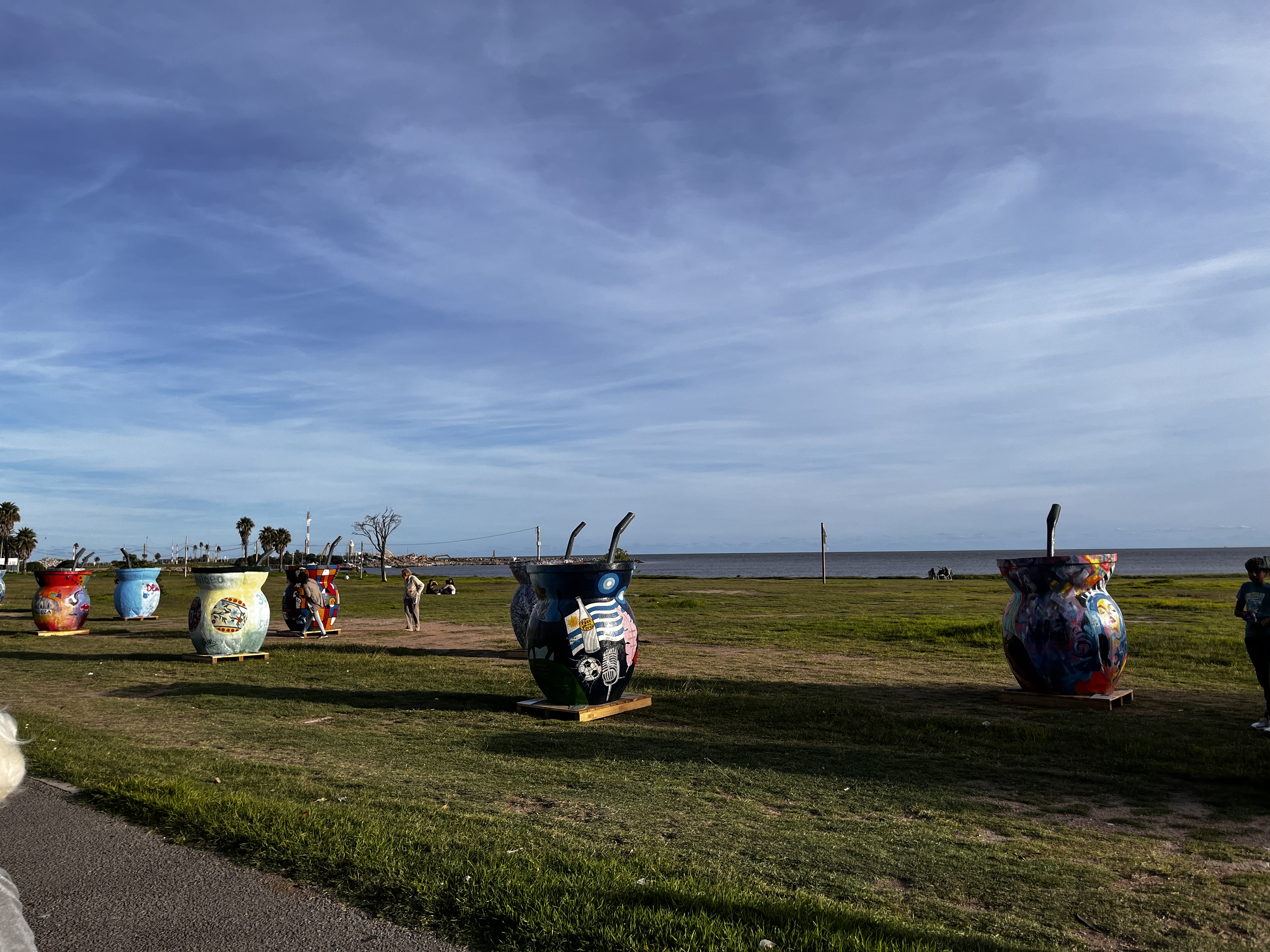Pre-mortem, 2025 edition
Table of Contents
Underneath the al-Shaheed monument in Baghdad.
It's peer review season, which naturally means I'm procrastinating by writing a pre-mortem for my 20s as I approach 30 in 2025.
The scorecard shapes up like this:
- Foreign languages learned: 2 (Arabic, Spanish)
- Programming languages learned: 5 (C++, Python, Go, Elixir, Erlang)
- Programming languages I want to write: 2 (C++, Erlang)
- Programming jobs held: 5
- Places I loved: Iraq, Argentina, Kyrgyzstan
- Places I lived > 6 months: US, Iraq, Uruguay
- Cats: 2 (Rumi, Paxos. Rumi sadly passed away a few years ago)
- Most given up skill: math
- Most acquired skill: language learning
- Best food: qoozi
- Defining software: Emacs, Anki, Whatsapp, Clubhouse
- Defining book: The Field Study Handbook by Jan Chipchase
Looking back, my 20s split cleanly in two: the early years establishing a tech career in New York, then post-2019 when boredom drove me to Jordan for Arabic. That decision kicked off a second act of country-hopping and bouncing from adventure to adventure. No complaints - it's been one hell of a decade.
1. Half #1
After college, I landed in NYC quickly. The first year was that classic new-grad adjustment - finding my tribe, settling into the rhythm. Started in Morningside Heights, migrated to LIC, brief Astoria stint, then back to LIC. The jobs were peak tech-bro stereotypes - well-compensated but forgettable.
Looking back, those early NYC years blur together now. I was hungry for experiences - hunting down new bars, events, obsessively checking The Skint and Nonsense NYC. Papers We Love at Two Sigma became a regular thing. Work eventually demanded more focus, until it didn't, and at 24 I hit that quarter-life restlessness - knowing I wanted something more but not quite what. 2016 was when I first broke pattern. Spotted Kyrgyzstan on Wikitravel1 and thought "why not?" - Bishkek and Issyk Kul seemed like an adventure. Had to push back against my company's "unlimited vacation" policy (always a trap) to make it happen.
My favorite coffee shop in Bishkek.
Bishkek hit different, the way only a foreign city can when you're in your early twenties. Winter scenes straight out of a Soviet postcard, Sierra Coffee becoming my refuge, subsisting on grocery store lagman - it all opened my eyes to different possibilities. Back then I couldn't articulate it, but now I recognize it as my first glimpse that life could be something else entirely.
I ping-ponged through tech jobs until 2017, when boredom hit hard. Sure, I was obscenely well-paid for a 22-year-old, but something was missing. Then I found The Field Study Handbook. The kickstarter pitch sold me this dream - becoming someone who could drop into any culture, adapt rapidly, and excel. I devoured that book looking for the secret sauce to become that person. Looking back, that book held quite a bit of useful technical advice, but its biggest impact on me was showing me the simple fact that I could do what I wanted to do.
Meanwhile, my technical path was taking me deeper down the stack - from Python to Go at Datadog, then C++. The devops world pulled me in, including a brief Kubernetes fascination (before I knew better). I was gravitating toward systems work, either VM-level or high-performance computing. The timing was off though - we were peak cloud revolution. AWS was still slashing prices at re:Invent, compute was cheap, and optimization was seen as premature. "Just throw more compute credits at it" was the mantra. Thank god that changed.
Fast forward through a few more countries, 2019 eventually rolls around, and I'm again bored and working at Bloomberg. I decided to take a month off, and bounce out to Jordan, in order to study Arabic on a lark. I took a month off for Arabic studies in Jordan, partly because I had some exposure, but mainly because it had this reputation for being brutal to learn. After struggling through a week of intensive Russian in Kyrgyzstan years before, I figured if I could crack Arabic, everything else would be cake.
In Wadi Rum park, Jordan.
Arabic grabbed me, but Jordan did not. I felt like Jordan was a country for Westerners, and not me, and found the Jordanians less than interesting. When I came back to my job, I became interested in what the Hashd al-Shaabi were doing in Iraq. I was briefly on this state-building/institutional/globalization bent, subscribing to the Economist and FT, reading what came out of Rand and Brookings, and closely following the What's In Blue newsletters.
This eventually led me to apply for a part time class at NYU's Near East studies masters, which kicks off the latter half of my 20's.
2. Half #2
Originally I had just wanted to take a few classes to get to know the Middle East more, since I was briefly considering a career switch to a FSO or a think tanker2. I was also curious about a humanities masters, since Twitter was awash with these people who claimed that engineers lacked humanities educations. I felt like I could do a humanities program and curbstomp people, while the humanities kids would never survive a CS program.
The program turned out to be transformative. The professors were exceptional, and what started as almost a dare became an intellectual obsession. Being the only part-time student actually worked in my favor - while my full-time colleagues were tied to their scholarships, I had the flexibility to travel. So I made a decision: fuck off to Iraq, meet some Hashd, and see where the path led.
Above the prayer hall in the shrine of Imam Hussein.
My first Iraq trip came right after the COVID lockdowns lifted in 2021. I landed in Kurdistan, drifting around Erbil until a chance encounter with Melisande at a coffee shop. She was something else - a decade in the KRG, regularly heading into Mosul during the fall of Daesh. Brilliant, tenacious, and refreshingly direct, she became an unexpected mentor. When my Arabic was still dogshit, she pushed me to going to south Iraq - told me the only way to improve was to fail at interviews repeatedly, learn from each attempt, and keep going. She embodied this remarkable combination of academic rigor and practical field experience that showed me what was possible in this space.
I already talk about Iraq far too much, but it's hard to understate how life changing it was for me.That first journey through the south - Baghdad, Hilla, Karbala, Najaf, Nasriyah, Basra - shattered my academic pretensions. My initial research focus on state-building and religious militias? Pure think-tank derivative nonsense. What mattered was life itself - how people lived, mourned, celebrated, survived.
There's this moment my friend had at Hussein's shrine in Karbala that captures it perfectly: watching a funeral procession, children playing, and hundreds praying, all within meters of each other. That's the real story - not distant analysis, but being there. Slaughtering lambs together, sharing grief, celebrating life. I don't know how to describe this. I don't know how many times one can see the fate of destruction and the joy of rebirth, all bundled up in this one fucked up place, before losing themselves.
The haramayn in Karbala defies description. How do you explain a place where destruction and rebirth dance together daily? The martyr posters everywhere tell stories no language can fully capture. Sure, I got sick of Iraqi food3, and actual cholera4 knocked me flat. But then there were those nights at Teacher's Club in Erbil, that beautiful collection of misfits - the slick World Bank guy, the fierce MAG worker fighting illness, journalists and NGO workers who made Iraq their home.
The start of a very good night at Teachers.
Life moved between extremes - from pressing against a saint's tomb to nursing a Corona under shisha smoke, from funeral prayers to endless cups of tea punctuated with too many mumbles of God's name. Even my failed attempt at learning Behdini in Duhok became part of the tapestry. And to my two "wives" in Baghdad - that fearless journalist and unstoppable NGO worker - you showed me what real courage looks like. You made survival possible, and friendship unforgettable.
Iraq marked me deeply, but it also exhausted me to the point where Uruguay beckoned. Uruguay's always had this reputation for being different - more laid-back, more stable. I figured I could land there, learn Spanish properly, focus on my remote work, and decompress. After defending my thesis at Fay Cafe in Baghdad (of all places) in April 2023, I made the jump.
Montevideo art sculptures exhibiting mate.
Uruguay was incredible too. Expensive, but safe and friendly. I attacked Spanish with intensity - four hours daily at the institute for four months - until it clicked. But it was Buenos Aires that really got under my skin. NYC might be big by American standards, but BA is a proper megalopolis - the kind that makes Asian cities nod in recognition. Great quality of life right in the middle of economic chaos - perfect. I knew I would love BA.
Iraq fundamentally rewired me into a "turmoil enjoyer"5, drawn to places where life spills onto the streets. It highlighted everything that frustrates me about America's closed culture - whether that's our car-centric design or Anglo-Protestant reserve. Something about American interactions always feels filtered, sanitized and closed compared to everywhere else I've been.
Career-wise, leaving Bloomberg for remote work opened up these possibilities. Then Clubhouse, of all things, connected me with this fascinating group, especially this one guy who shared my background but challenged my thinking in ways I could actually engage with. He gets the spirit of the SARs in a way few others do, and he's the one who nudged me toward WhatsApp a year ago. Sometimes the best career moves come from the strangest places.
I returned to NYC in May for WhatsApp - a product that had become essential to my life abroad. The platform that kept me connected across continents now became my technical home. The progression made sense: the remote job's Elixir stack was a perfect bridge to WhatsApp's Erlang ecosystem. The role is intense - the bar is set incredibly high - but it's exactly the technical challenge I was looking for. There's room to grow deeper into the distributed systems space, and I'm here for it.
3. ⛰️
Russian's locked in as my 30s' primary language, though I'm still shopping for a secondary. Arabic and Spanish defined my 20s' linguistics (and Arabic's still got me for the long haul).
The first half of my 20s feels like prologue now - the real story kicked in during the latter half. My 30s stretch ahead like a blank canvas, full of possibilities. As that magazine says: "when in doubt, go higher."
Programming is no longer just a "add more computers" problem. I mean it is from a genai perspective, but we'll see how far scaling laws takes us. As Ed Zitron says, I'm not worried about whether agents are the next thing, I'm worried about if agents are the last thing for genai. Thankfully I don't have too many stakes in that particular gambit, but the Jevons paradox of compute has really happened: as computers and data have gotten cheaper, people produce more of it, and now practitioners routinely seek sub-linear algorithms. In 2015 we were satisfied with an O(N) thing, but we want sub-linear! I feel like I've seen the rise and fall of computing throughout my 20s. I've alluded to before that our technological trends are reversing, with our compute power being constrated at the top because of the huge amounts of data coming in and constrained from the bottom because GPUs are hogging all of our DC power. But this constraint is breeding innovation - optimization is back with a vengeance, and it's thrilling to watch.
The industry's transformation is equally stark. The 2016 days of walking into six-figure jobs with a bootcamp cert and a firm handshake are dead. Junior roles have become battlegrounds, and tech's idealistic veneer has cracked. The big players have "matured" - trading ping-pong tables for lobbying arms and defense contracts. It's a predictable evolution, but watching Google fall to the MBA/PE/consulting crowd still stings. There are still pockets of that old anti-establishment spirit, but they're dwindling. Each tech giant seems destined to follow the same path: grow, optimize, corporatize, repeat.
US area-studies is dead, and its whole ecosystem is rotting. My generation of scholars, think-tankers, and foreign policy "experts" - all riding high on post-9/11 NSEP, CLS, and FLAS money - hit a wall. My twenties started with Daesh and ends with Gaza, watching another horror unfold in real-time. But after living in Iraq, seeing what people survived there, I'm partly numb to it. What stuck with me instead was this burning need to understand people, to live among them rather than study them from afar. The whole field is having a meltdown. We can document tragedies but can't do a damn thing to stop them. It's embarrassing watching the response: academics throwing group therapy sessions disguised as protests, think tank brown-nosing with each other, journalists parachuting in for the crisis du jour, and cynics smugly mocking all efforts while doing exactly nothing themselves. We're all just overeducated, underpaid knowledge workers crafting elaborate hierarchies in our heads, too afraid to look beyond our bubble of policy briefs and theoretical frameworks. That's the kicker I learned in my twenties: I can't stay in the US long-term. The whole system's rotten - from the ivory tower to the think tank glass offices to the newsrooms reporting from thousands of miles away.
One of my biggest regrets for my 20's was that I slowly dropped off of doing any serious math. I've done some first year college statistics, but none of my jobs have required a serious attempt at mathematics. I'm hoping this changes. I wanted to push for a black box optimization project, and I'd like to do work on complexity analysis of algorithms in a constrained environment. Earlier on in my 20's I was interested in distributed systems, but I realized that distributed systems had become commonplace, and were no longer very interesting, since the tools we had were just so much better. This is one notable area I'm earmarking for my 30's, I want to get back at it.
My 20's was great, I made good progress in my career, I made some amazing friends in my graduate program (including a man who loves Jordan I always end up sparring with), I made lifelong friends in Iraq and Uruguay, and I wouldn't trade a single bit of it for anything else. I'm terrified for my 30's, but in a trepidation way, not a geriatric-millenial way, but where this blank canvas of a decade is wide open for me. Adventure to adventure, learning all the time that I don't know everything, that I don't know all the ways to live, that I can still get wounded is this sign that I'm still alive and kicking.
The famous waterwheels of Hit.
